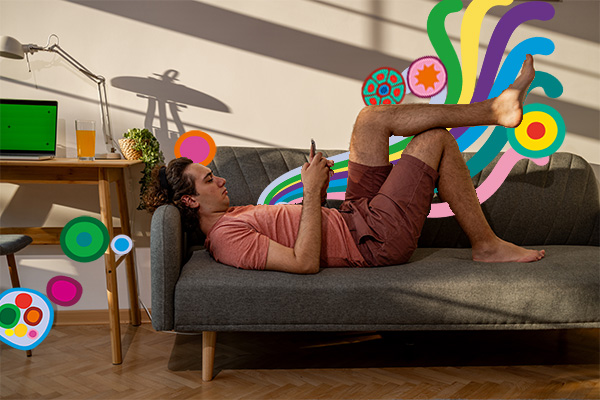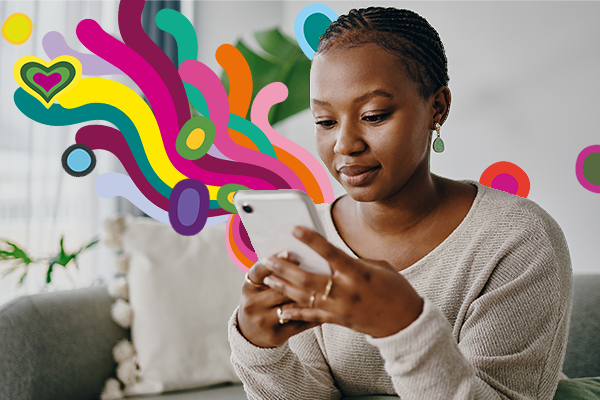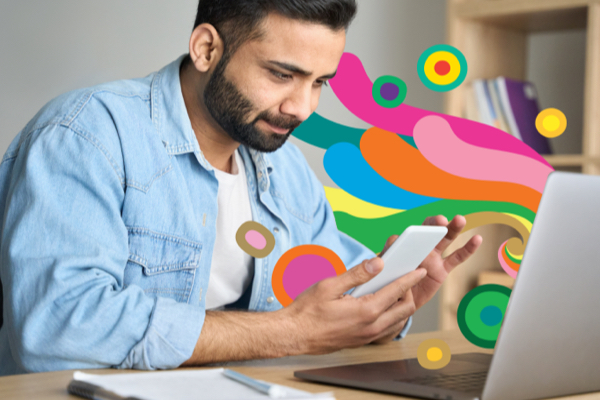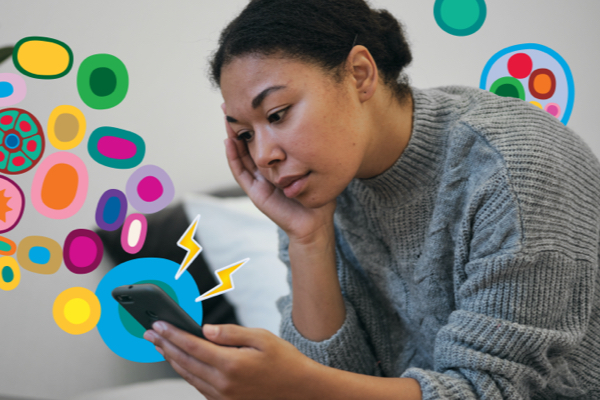What is hangxiety and how do I get rid of it?

Have you ever had this experience? You wake up after a big day or night of drinking and experience a hangover with heightened feelings of shame and anxiety. You scroll through photos, messages and social media with fear as you try to piece together what happened.
It’s a feeling that has been associated with alcohol for a long time but recently the slang term ‘hangxiety’ has caught on via social media and the internet to describe the experience.
What causes hangxiety?
When you drink alcohol the chemical balance in your brain changes and it can influence how you think, feel, and make decisions. Alcohol increases your inhibitory neurotransmitters and the release of dopamine, which is why you may feel relaxed and happy after a drink or two. The flip side is, once the alcohol starts to wear off, our brain works hard to restore its normal chemical balance, which is what may cause feelings of anxiety.
What are the symptoms of hangxiety?
You may experience hangxiety if there’s:
a feeling of unease, dread or impending doom
irritability
a sense of shame, guilt or regret about what happened when you were drunk
paranoia
an increased heart rate
jitteriness
sweats
difficulty with concentration.
How to get rid of hangxiety
It’s important to remember you’re not alone if you feel hangxiety. If you wake up anxious and overwhelmed, here are some things you can do to calm yourself:
Hydrate
Practise mindfulness
Rest
Eat
Relax with a favourite book, television show, movie or podcast
Avoid more alcohol
Avoid stimulants like caffeine
Be social, talk to your friends.

24/7 Medibank Mental Health Support
Medibank health insurance members can chat to a mental health professional about how they feel and ask questions about a range of mental health concerns for themselves or a loved one and get guidance on what they can do next. Chat online or call 1800 644 325 anytime of the day or night, 7 days a week at no extra cost.~
Moderation is everything.
Look for ways to limit how much alcohol you drink and when. The Australian Alcohol Guidelines recommend no more than 4 drinks on any one day and no more than 10 drinks a week.
Here’s a few more lifestyle changes you can make:
Set yourself limits.
Alternate between an alcoholic drink and a glass of water.
Drink slowly.
Consume lower-alcohol-content drinks.
Eat while or before drinking.
Dilute your drinks with water or ice.
Remember: if you take any medications, alcohol can reduce their effectiveness and increase their side effects.
A lot of people in Australia drink alcohol to be social and there can be hidden pressures to ‘fit in’ or ‘keep up’. Be open and honest with your family and friends about your lifestyle changes so they can support you. At parties or social events, ask if there’s alcohol-free options available. There’s been a rise in the number of alcohol-free drink options in the past decade. Actor Tom Holland, best known for playing Spider-Man, recently launched his own non-alcoholic beer brand after he got sober.
Holland told Food and Wine in an interview: "I felt really passionate about being sober, promoting a healthier lifestyle, making a difference and helping people.”
Be confident in your decision and try not to fall back into old habits due to peer pressure.
Where to get help
If you or someone you know has a problem with alcohol dependency, there are support services available:
Alcohol and Other Drug Hotline 1800 250 015.
If your life or someone else’s is in danger, call 000 immediately.
If you’re in distress and need help, call Lifeline on 13 11 14 for 24/7 crisis support.
For non-emergency support, your GP or regular health practitioner is often the best place to start. They will be able to assess your individual situation and recommend the best next steps for your recovery.
Medibank health insurance members can chat to a mental health professional about how they feel and ask questions about a range of mental health concerns for themselves or a loved one and get guidance on what they can do next. Chat online or call 1800 644 325 anytime of the day or night, 7 days a week at no extra cost~.
Remember that help is always available, no matter the situation.
How can we help?
I want to know how my cover supports mental health
I need help and want to talk
Related articles
Things you need to know
~Some referred services may involve out of pocket costs and waiting periods may apply.
While we hope you find this information helpful, please note that it is general in nature. It is not health advice, and is not tailored to meet your individual health needs. You should always consult a trusted health professional before making decisions about your health care. While we have prepared the information carefully, we can’t guarantee that it is accurate, complete or up-to-date. And while we may mention goods or services provided by others, we aren’t specifically endorsing them and can’t accept responsibility for them. For these reasons we are unable to accept responsibility for any loss that may be sustained from acting on this information (subject to applicable consumer guarantees).


